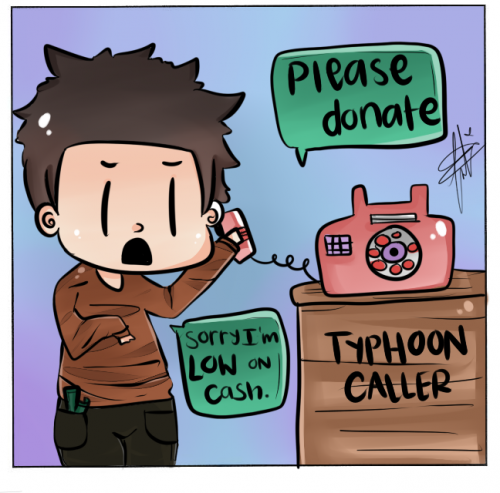Are You Donating to Relieve Natural Disasters?

JADE LIEU
Staff Writer
Typhoon Haiyan—the most powerful storm that has hit the Philippines in recent history—has wreaked havoc on the country, and various relief organizations are relying on Americans to help fund their efforts. Many Americans are willing to donate to the cause, but some unknowingly donate to the wrong groups of people who take advantage of the disaster as a way to pocket the money.
Fraud charities are not as uncommon as one may presume, especially after the occurrence of natural disasters. These organizations scam good-hearted individuals, using others’ suffering as an opportunity to selfishly gain money for their own profit. These fraud charities cause the rate of disaster relief to be much slower than what it could have been had it not been for the facades. Those who have discovered these increasingly prevalent false charities now refuse to donate to any major charities, according to James Altucher, a featured writer on Business Insider. Sadly, because of these selfish individuals, there will be less money donated to the allocated agencies, causing more economic stress on the foundations trying to relieve destruction caused by natural disasters.
There are many forms which these false agencies take to make donating easier for donors. Calling the agency by telephone is a popular method of these fraud charities, where donations could go anywhere if given the donor’s credit card information needed for money transactions. Most of these facades take the form of a text, in which you respond to a number with a code to donate. According to Charity Navigator, most donations came from individuals, roughly around $233 billion. The 72% of Americans who wish to contribute a small amount to the cause are usually attracted to these organizations due to the simplicity of the organization. Most feel accomplished knowing that they donated to the cause, but are sadly unaware that they have given the money toward a false charity.
Donating money seems to be aiding the cause, and it is evident that money is more easily given than our time and energy. One way many Americans can avoid donating to phony organizations is to physically volunteer to help the relief efforts. According to National Philanthropic Trust, 64.3 million adults volunteered 15.2 billion hours of service, worth an estimated value of $296.2 billion. Physically helping the cause is easier said than done, but it is a more secured way of knowing that the hard work and effort put into the cause will actually provide for the survivors, whereas donations may not guarantee aid for the survivors.
However, not all charity organizations are self-serving. Organizations such as American Red Cross, Americares, Catholic Relief Services and UNICEF are among the charities recommended by Charity Navigator for the Philippines relief effort. These charities can be reached online through their individual official websites. Through a simple click of a button, we can all lend support in order to mobilize and deploy major disaster-relief efforts.